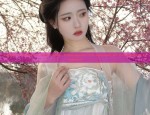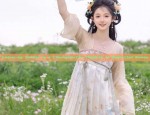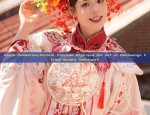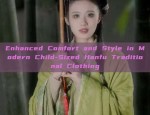The Rise of Hanfu Traditional Costumes among Female College Students
In the contemporary academic atmosphere of cultural revitalization, an increasing number of female college students are embracing traditional Hanfu costumes as a symbol of cultural heritage and personal expression. This trend is not just a passing fad but a deep-rooted appreciation for the beauty and essence of ancient Chinese culture.
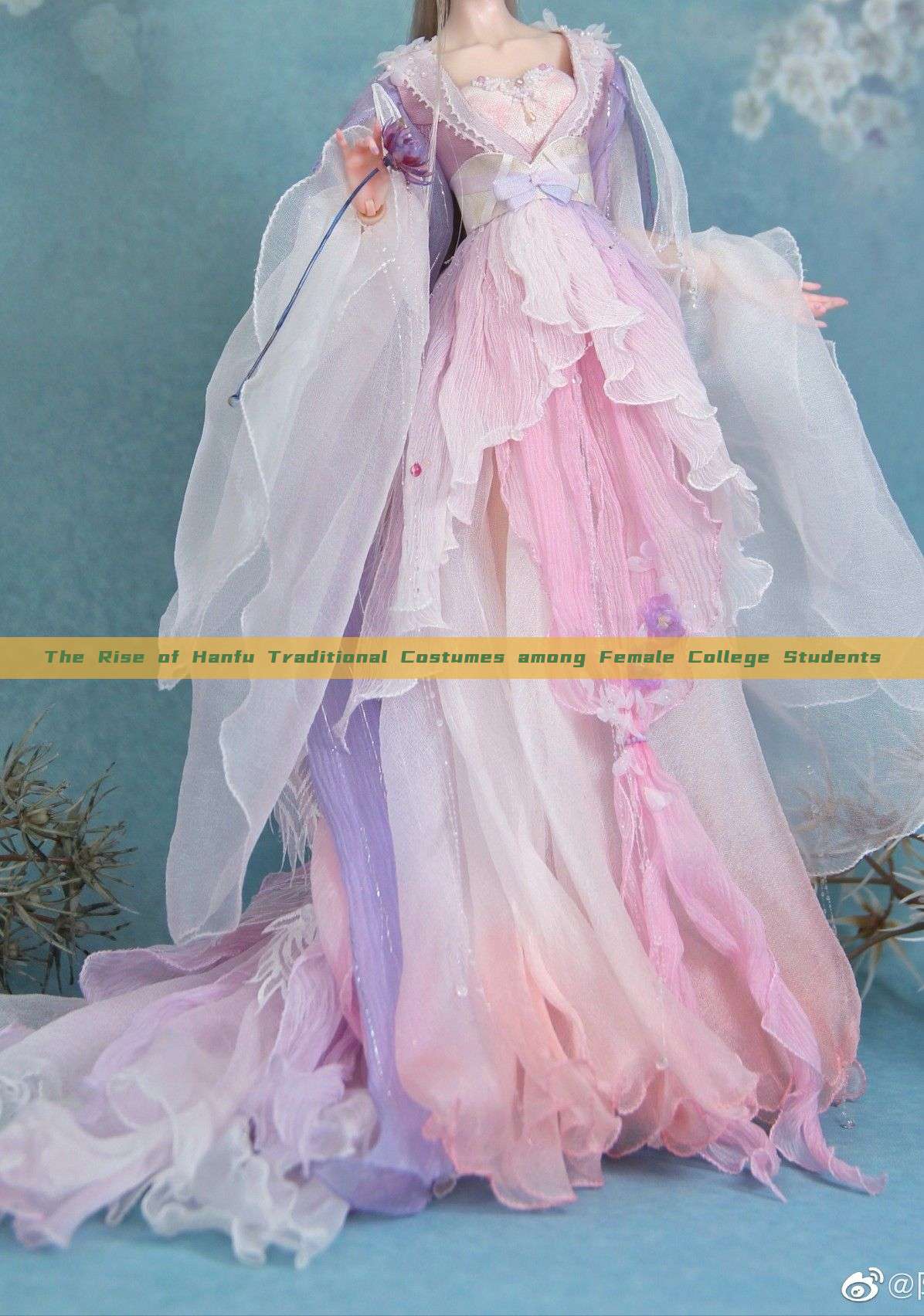
The Hanfu, also known as "古装"(ancient costume), is a traditional clothing style that dates back to the Han Dynasty in China. It embodies the essence of Chinese culture and aesthetics, featuring intricate designs, vibrant colors, and a balance between simplicity and elegance. Today, this ancient attire has gained immense popularity among female college students, who view it as a medium to connect with their cultural roots and showcase their love for traditional aesthetics.
The adoption of Hanfu costumes by female college students is not just about wearing beautiful clothes. It's about embracing a culture, understanding history, and feeling a sense of belonging to a rich heritage. These students are wearing Hanfu to events, parties, and even to casual outings as a way to promote cultural awareness and spread the beauty of traditional Chinese attire.
The popularity of Hanfu is not without reason. The intricate designs, vibrant hues, and meticulous craftsmanship involved in creating these costumes attract many. The costumes are not just pieces of clothing; they are works of art that require skilled craftsmanship and knowledge of traditional techniques. The attention to detail in every piece is remarkable, from the patterns on the fabrics to the intricate embroidery and beading.
Moreover, wearing Hanfu also gives female college students a sense of pride and accomplishment. As they delve deeper into the culture and history behind these costumes, they feel a sense of responsibility to preserve and promote this heritage. By wearing Hanfu, they are not just expressing their love for traditional aesthetics but also honoring their cultural roots and heritage.
However, this trend is not without its challenges. As Hanfu becomes increasingly popular, there is also a rise in commercialization and mass production of these costumes. Some students worry about the authenticity of these commercial products and fear that the true essence of Hanfu might be diluted in the process. To address this issue, many student organizations are promoting the traditional craftsmanship behind Hanfu and encouraging people to learn about its history and culture.
Another challenge is the perception of Hanfu as just a "fashion trend." While its popularity has grown among college students due to its aesthetic value, it's essential to recognize that it's not just a trend but a deep-rooted cultural heritage that needs to be respected and preserved. Students are encouraged to understand the history and culture behind Hanfu and appreciate it for its true value rather than just following a trend.
In conclusion, the rise of Hanfu traditional costumes among female college students is not just a trend but a deep-rooted appreciation for their cultural heritage and traditional aesthetics. By embracing Hanfu, these students are not just expressing their love for traditional culture but also honoring their roots and preserving a rich heritage that needs to be passed down to future generations. As the popularity of Hanfu grows, it's essential to recognize its true value and appreciate it for its beauty, history, and cultural significance.
Moreover, it's important to encourage open discussions about Hanfu culture, allowing different perspectives and opinions to coexist harmoniously while respecting the authenticity and essence of this rich cultural heritage. By doing so, we can ensure that the beauty and essence of Hanfu are preserved and passed down to future generations, allowing them to appreciate their cultural roots as much as we do today.

 Previous Post
Previous Post

